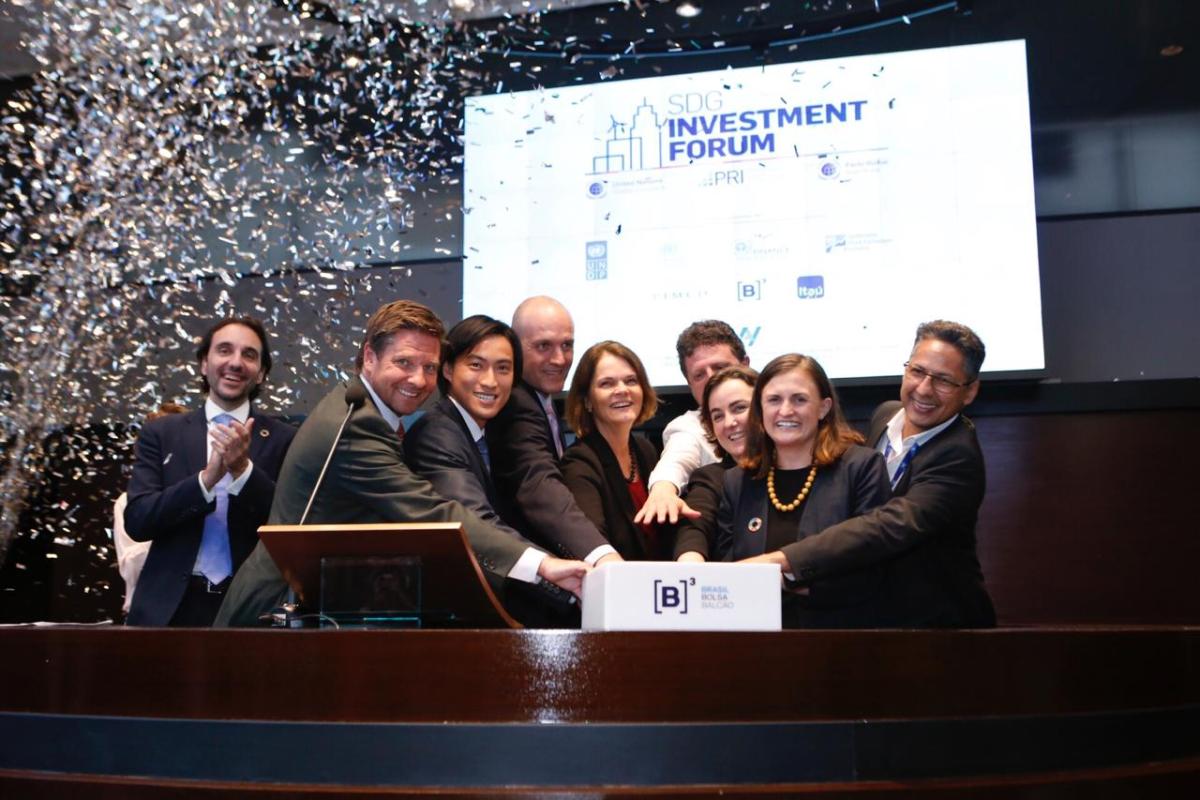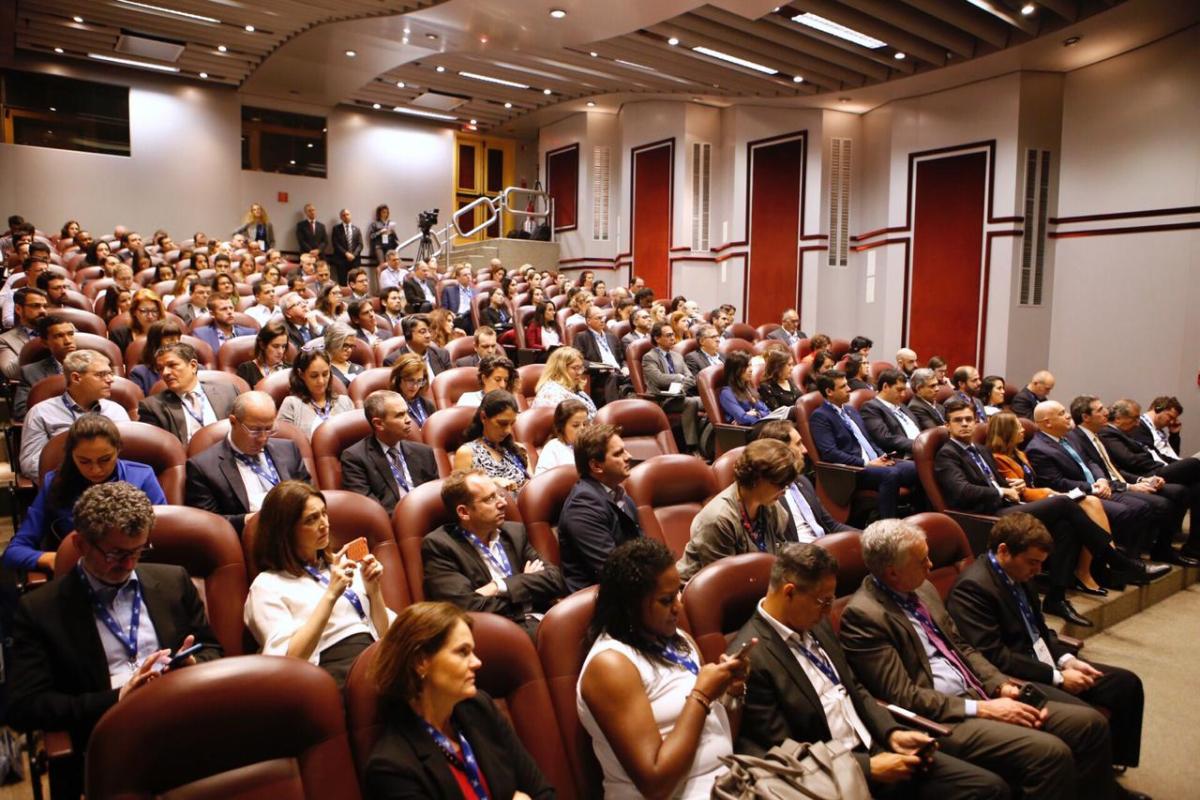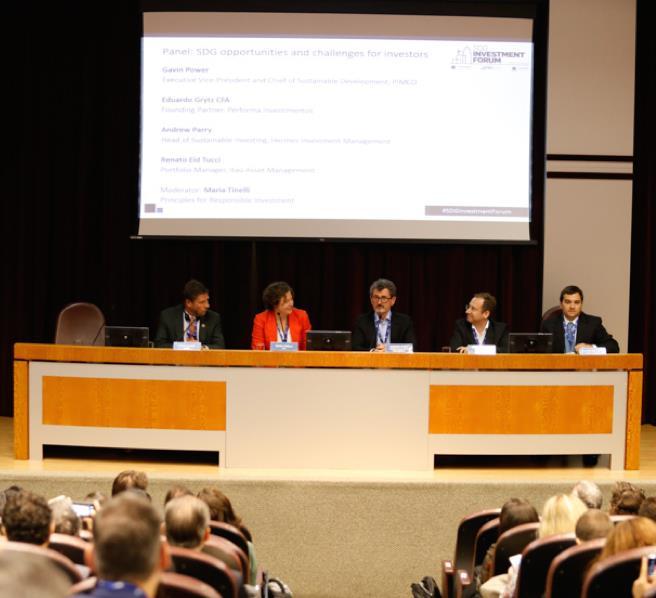Companies, Investors Call for Improved Integration of the Sustainable Development Goals Across Business Strategies and Financial Markets
Companies, investors call for improved integration of the Sustainable Developme…
SAO PAULO, March 21, 2019 /3BL Media/— Companies and investors joined representatives from Government and the UN today to discuss how the private sector can play a greater role in directing capital towards the Sustainable Development Goals.
Launched at B3 Headquarters in São Paulo, the inaugural SDG Investment Forum focused on the opportunities and challenges of investing aligned with the SDGs. Building on the work of voluntary national reviews (VNRs) and related country plans, the new SDG Investment Forum event series is designed to help ensure that the private sector is aware of SDG investment opportunities and that Governments understand the challenges companies and investors face when aligning their strategies with the SDGs.
The Forum brought together nearly 200 participants from both the public and private sector alongside representatives from the UN, civil society and academia. Organized as part conference, part roadshow, the event looked at the SDG investment opportunities and challenges within Brazil, closing with a bell ringing ceremony at the B3 stock exchange.
The key message that emerged from the Forum was a recognition that while the SDGs present a clear financial opportunity, we need to see a more decisive move toward integration of the SDGs across business strategies and into financial markets.
As Fernando Tennenbaum, CFO of Ambev, noted at the event, “Investing in SDGs is something that makes sense — it will generate returns and ensure the sustainability of your business. There is no conflict, only synergy between the company’s goals and the SDGs. An event like the SDG Investment Forum helps to align everyone involved in this common vision.”
Highlighting the opportunities, Gavin Power, Chief of Sustainable Development at PIMCO, said, “We at PIMCO see an exciting opportunity to help create a market in SDG bonds. We encourage companies and Governments to consider issuing SDG-related instruments to finance their sustainability objectives. This is one way we can help answer the billions-to-trillions challenge of the SDGs.”
Building on this idea in the Brazilian context, Denise Hills, Head of Sustainability and Inclusive Business at Banco Itaú, said, “Many Brazilian companies are benchmarks in their industries because they can apply the SDGs as part of a metric-based impact system and incorporate them into business strategies. This is the chance for these companies to expand their opportunities globally, make them more competitive and attract investors.”
While actions to advance the SDGs are increasing, if we are to achieve these ambitions we need to break down silos and bring the public and private sector together. By creating a space for investor-company dialogue, the SDG Investment Forum can help the private sector play a stronger role in directing valuable capital toward the SDGs. This helps lay the groundwork for improved integration of the SDGs across business strategies and financial markets.
“To achieve the SDGs, we need to engage businesses and investors in all parts of the world. Our regional SDG Investment Forums foster collaborative dialogue on how the private sector can play a role in directing capital toward the SDGs and will help inspire action to close the SDG funding gap,” said Lise Kingo, CEO and Executive Director of the UN Global Compact, speaking on the inaugural Forum’s success.
Fiona Reynolds, CEO of PRI, added, “It is by business and investors working together that we can make a difference in advancing the SDGs and bring about financial benefits for beneficiaries, while driving positive real-world impacts.”
The SDG Investment Forum Brazil was co-organized by the UN Global Compact, PRI and Global Compact Network Brazil, with support from UNEP FI, UNDP, UNCTAD, UN DESA, the Sustainable Stock Exchanges (SSE) initiative, PIMCO, Itaú and B3. Following this the UN Global Compact and PRI will host similar SDG Investment Forums in different regions of the world.
#####
About the United Nations Global Compact
As a special initiative of the UN Secretary-General, the United Nations Global Compact is a call to companies everywhere to align their operations and strategies with ten universal principles in the areas of human rights, labour, environment and anti-corruption. Launched in 2000, the mandate of the UN Global Compact is to guide and support the global business community in advancing UN goals and values through responsible corporate practices. With more than 9,500 companies and 3,000 non-business signatories based in over 160 countries, and 70 Local Networks, it is the largest corporate sustainability initiative in the world. For more information, follow @globalcompact on social media and visit our website at www.unglobalcompact.org.
About Principles for Responsible Investment (PRI)
The PRI is the world’s leading proponent of responsible investment. It works to understand the investment implications of ESG factors and to support its international network of investor signatories in incorporating these factors into their investment and ownership decisions. The PRI acts in the long-term interests of its signatories, of the financial markets and economies in which they operate, and ultimately, of the environment and society as a whole. Visit the PRI website for more details: www.unpri.org.
About Global Compact Network Brazil
The Global Compact Network Brazil is the third largest Global Compact Local Network in the world, with almost 800 members. Since 2015, the number of signatories and participants has increased 70 per cent. Created in 2003, the Network Brazil also leads the Local Network Regional Council in Latin America as well as the Local Network Global Council, including participation as part of the UN Global Compact Board. The Network oversees nearly 30 projects and initiatives, covering topics such as: water and sanitation, food and agriculture, energy and climate change, human rights and labour, the fight against corruption, the SDGs and corporate engagement.




